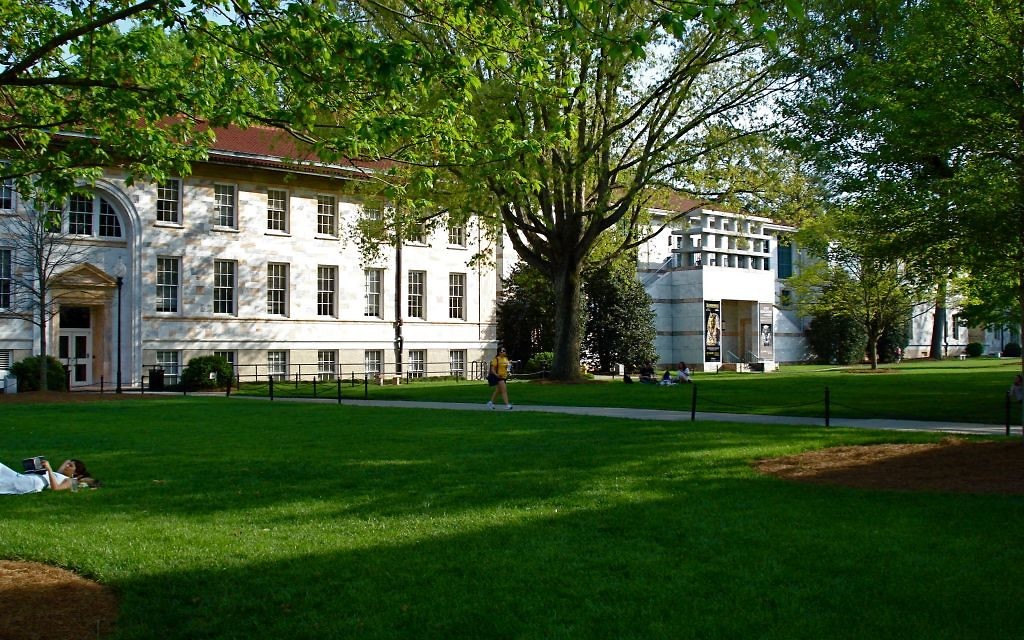Do More Than Stroll During Campus Tour
A visit to a college you're considering is an important opportunity to learn and to demonstrate interest.
Typically, high school students visit college campuses of interest to them. While an interview with admissions may occur the same day, this article will only focus on the campus tour.
Along with other high school students and often parents, you will follow the tour guide, usually a current student at the college, as the guide walks backward while facing the tour participants. Try not to lag behind or you might struggle to hear the guide’s remarks.
Your phone rings, and you note it is one of your best friends. You start your conversation. That is one way to show the guide that you are merely taking a walk and that the tour is secondary.
Get The AJT Newsletter by email and never miss our top stories Free Sign Up
Get the message?
The guide asks for questions, and you hear a lot of questions coming from parents. Who will be applying? The students or parents? That is another message.
Why visit? That is the question you should ask in the first place.
That campus might be your home for four years or more. Would you want to live on a campus that doesn’t appeal to you?
As a visitor to hundreds of campuses, I have learned a lot. In my case, that involves meeting with an admissions official and bringing along four to five pages of questions. A future article will investigate the actual interview.
If the current college accepts you and it is at the top of your list, you might take another visit before the May 1 national reply date, when you must notify a college that you have accepted its offer. (There is an exception with an early decision acceptance, in which you must accept the college’s offer by an earlier deadline.)
Back to the question of the tour. Not only do you see the campus, but some of your observations could find their way into an interview and even your essay. Remember, colleges are interested in students who are interested in them.
How to make your campus visit and tour worthwhile:
- Schedule a college tour so the college knows you will be on campus.
- Participate in an information session, which is usually a part of the tour.
- Arrange to sit in on a class that interests you if possible.
- Plan to meet with a professor in your potential major.
- Meet with a coach for whom you might play.
- Grab a school newspaper if you see one.
- Scan bulletin boards as you pass. You can learn about guest lecturers, entertainment, discounts, job opportunities on campus and nearby, and a host of other events. Are protests being planned? That will give you a view of what’s going on at the campus.
- Ask students, including your guide, why they chose that college and what surprised them once they matriculated.
- Eat in the cafeteria. If you have a special diet, ask about provisions for such a diet.
- If you keep kosher, ask questions such as where the food is served, who supervises the kosher plan, how many meals are served per week, and what options the plan offers.
- Browse in the college bookstore.
- Drive around the community surrounding the campus. Is it residential? Run-down? Safe?
- Where do students hang out on campus?
- Are buildings in good shape? Do they need paint? Being updated?
- Any construction taking place?
- How large are classrooms?
- Whether or not Hillel or another Jewish facility is mentioned on the tour, visit that facility yourself after the tour. Find out what Jewish activities and services are on campus. More on that in a future article.
- What recreational activities are available? Where?
- What is the library like? Is it easy to study there? Are there group rooms to study with other students? Are books available from other libraries? What’s the schedule of hours for students during weekdays and weekends? Are hours extended during exam time?
Imagine yourself on that campus for four years.
Should your parents visit campuses with you? There is an advantage because they will see the same things on the tour, but one of you may see what the other missed. You can discuss with your parents what each of you observed.
What about going with a friend? That is fine, but what if you agree with everything your friend mentions just because you always agree with him or her?
If the friend hates the campus, you might have the same opinion. But what is good for you might not be good for your friend.
Also, don’t judge the college based on the tour guide if you don’t click with that individual. One person is not the entire student body.
Did you think that the tour is just walking around and seeing if the grass and plants are being taken care of by the college? Coming home and just saying that the grounds are beautiful?
As you should realize, there is much more to learn on a college visit. Take as much advantage as you can that day because that college could be your home away from home.





comments